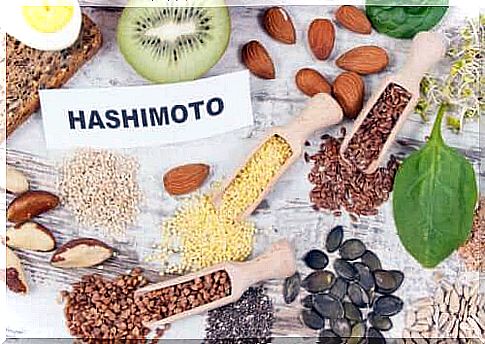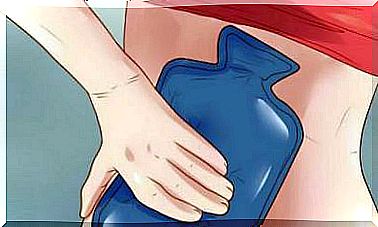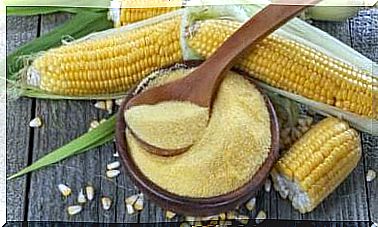Hashimoto’s Diet: Description, Foods And Advice
Hashimoto’s hypothyroidism is characterized by a deficiency in the production of thyroid hormones. It is due to chronic inflammation of the thyroid gland. We tell you in this article about the diet that helps to fight this problem.

The Hashimoto diet is used to treat a type of hypothyroidism. This pathology has its origin in a hormonal imbalance. It generally requires the use of drugs which then replace the deficiency of hormones.
It should be noted that thyroid related problems can be of two types. It is thus possible to experience an increase in the production of thyroid hormones. Or, on the contrary, to find oneself in a situation of deficiency of the latter. In both cases, there are many drawbacks to this.
Why is it necessary to treat the diet with Hashimoto’s disease?
Hashimoto’s hypothyroidism is an inflammation of the thyroid gland which causes it to malfunction. It is therefore important to take care of your diet in order to avoid a progression of the disease, which could then lead to end up with a thyroid gland less and less able to perform its functions.
It should not be forgotten that this organ is responsible for the production of a certain number of hormones which are essential for metabolic functions. Not being able to synthesize some of these hormones in sufficient quantities can lead to significant weight gain. Worse still, in the case of chronic inflammation of the gland, there is a risk of tumor development in this area.
Through food, however, it is possible to provide certain nutrients that improve thyroid function. In addition, taking care of your diet can compensate for the weight gain induced by Hashimoto’s disease.
It should also be noted that overweight situations are detrimental to health since obesity increases the number of various disorders.

What foods to avoid in Hashimoto’s diet
Now we’ll go through the list of foods to avoid if you have Hashimoto’s hypothyroidism. And this, in order to slow the progression of the pathology.
Crucifers
Although they are recommended foods as part of a balanced diet, cruciferous vegetables should be avoided as part of the Hashimoto diet. This is because they could increase inflammation of the thyroid. This family of vegetables includes cabbage, collard greens, Brussels sprouts, broccoli, and cauliflower.
Nuts and peanuts
The same goes for these products as for cruciferous vegetables. They contain a large amount of anti-nutrients which can reduce the absorption of iodine by the intestine.
Spinach and carrots
Although you should limit the consumption of the products mentioned above, you can be more lax in the case of spinach and carrots. It is then sufficient not to consume them on a daily basis.
These are indeed foods that can bring you benefits if consumed in moderation as part of the Hashimoto diet.
Foods that you should eat more of
One of the essential aspects of Hashimoto’s diet is the need to increase the presence of iodine in the diet. According to a study published in Recent Patents on Endocrine, Metabolic & Immune Drug Discovery, it is an essential nutrient for the production of thyroid hormones.
Fish
Fish contains high levels of iodine. In addition, it also contains omega-3 fatty acids, the anti-inflammatory properties of which are well known. For this reason, they have a dual action in combating the progression of Hashimoto’s hypothyroidism.
Seafood
As in the previous case, the iodine content of seafood is important. However, people with high levels of uric acid in their blood should be careful when consuming these products as they may develop problems.
Dairy products
Dairy products contain high doses of iodine. In addition, their composition is rich in probiotics, which are able to attach themselves to the digestive tract and exert a positive metabolic effect. When it comes to weight control, these are great foods.
Other important nutrients to consider
In addition to the foods mentioned above, it is important to increase the intake of the following nutrients, since they are also involved in the synthesis of thyroid hormones:
- First of all, zinc. It is present in red meat and nuts.
- The iron. It is found in foods of animal origin.
- Manganese. It is common in nuts and grains.
- Vitamin A. It can be provided by green, red or orange vegetables.
- Finally, selenium which is mainly present in nuts and cereals but also in dairy products.

Hashimoto’s diet is not enough, however.
The promotion of physical activity is indeed essential to stabilize the metabolism and ensure an adequate body constitution. Otherwise, obesity, a risk factor for the development of many other chronic pathologies, could develop.
At the same time, it is essential to take medication. This can improve the quality of life, for example by reducing the constant feeling of fatigue. However, drugs should be prescribed by a specialist and doses should be reviewed on a regular basis.
Hashimoto’s diet to help regulate hypothyroidism
Hashimoto’s hypothyroidism is a condition that can cause many problems in the medium term if it is not managed properly. This is why early detection is essential. However, adapting lifestyle and eating habits is also essential.









